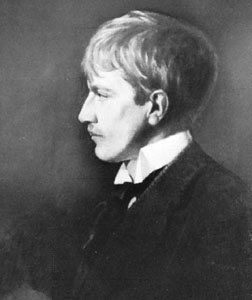Investigative Classics is a weekly feature on noteworthy past examples of the reporting craft.

The New Journalism is credited with bringing the techniques of literature to the stodgy world of Joe Friday journalism.
Make no mistake: Tom Wolfe, Truman Capote, Hunter S. Thompson, Joan Didion and other greats from the 1960s and 70s helped shape the craft. But it’s also true that they were standing on the shoulders of some giants.
Consider Stephen Crane, who was a poet, novelist and ink-stained wretch all at once during his brief life (1871-1900). Journalism to him was more than the first draft of history; it was also the first draft of his novels. Crane made frequent trips to Manhattan’s tenements in the early 1890s to write freelance articles for New York newspapers and gather material for his pioneering works of American Naturalism and Impressionism, including “Maggie: A Girl of the Streets” (1893).
One of his more memorable works of journalism, published in the New York Press in 1894, was “An Experiment in Misery,” a tour-de-force of creative nonfiction that he wrote around the time he began work on his great Civil War novel, “The Red Badge of Courage.”
Foreshadowing the work of another grandfather of the New Journalism, the New Yorker writer Joseph Mitchell, Crane (presumably “the youth” in this story) heads down to New York’s Skid Row, where he mixes lush prose and sharp detail to deliver a memorable vignette that is both gritty and transcendent.
His Virgil in this trip through Gotham’s Inferno is a “reeling man in strange garments. His head was a fuddle of bushy hair and whiskers, from which his eyes peered with a guilty slant. In a close scrutiny it was possible to distinguish the cruel lines of a mouth which looked as if its lips had just closed with satisfaction over some tender and piteous morsel. He appeared like an assassin steeped in crimes performed awkward.”
The assassin has a simple request:
“Say, gents, can’t yeh give a poor feller a couple of cents t’ git a bed? I got five, and I gits anudder two I gits me a bed. Now, on th’ square, gents, can’t yeh jest gimme two cents t’ git a bed? Now, yeh know how a respecter’ble gentlem’n feels when he’s down on his luck, an’ I—“
The seedy man, staring with imperturbable countenance at a train which clattered overhead, interrupted in an expressionless voice—“Ah, go t’ h----!”
But the youth spoke to the prayerful assassin in tones of astonishment and inquiry. “Say, you must be crazy! Why don’t yeh strike somebody that looks as if they had money?”
The assassin, tottering about on his uncertain legs, and at intervals brushing imaginary obstacles from before his nose, entered into a long explanation of the psychology of the situation. It was so profound that it was unintelligible.
Instead of just handing him the coins, Crane accompanies the man to a flophouse, which is a feast for the senses.
Shortly after the beginning of this journey the young man felt his liver turn white, for from the dark and secret places of the building there suddenly came to his nostrils strange and unspeakable odors that assailed him like malignant diseases with wings. They seemed to be from human bodies closely packed in dens; the exhalations from a hundred pairs of reeking lips; the fumes from a thousand bygone debauches; the expression of a thousand present miseries.
A man, naked save for a little snuff-colored undershirt, was parading sleepily along the corridor. He rubbed his eyes, and, giving vent to a prodigious yawn, demanded to be told the time.
“Half-past one.”
After rising the next morning, the assassin describes his struggles as the pair enjoy coffee and rolls. It’s not completely clear why he’s tramped from one job to the next, but his thirst for whiskey is a good part of the answer. In the article’s remarkable ending, Crane collapses the wall between reporter and subject to suggest what it feels like to be this man:
In the City Hall Park the two wanderers sat down in the little circle of benches sanctified by traditions of their class. They huddled in their old garments, slumbrously conscious of the march of the hours which for them had no meaning.
The people of the street hurrying hither and thither made a blend of black figures changing yet frieze-like. They walked in their good clothes as upon important missions, giving no gaze to the two wanderers seated upon the benches. They expressed to the young man his infinite distance from all that he valued. Social position, comfort, the pleasures of living, were unconquerable kingdoms. He felt a sudden awe.
And in the background a multitude of buildings, of pitiless hues and sternly high, were to him emblematic of a nation forcing its regal head into the clouds, throwing no downward glances; in the sublimity of its aspirations ignoring the wretches who may flounder at its feet. The roar of the city in his ear was to him the confusion of strange tongues, babbling heedlessly; it was the clink of coin, the voice of the city’s hopes which were to him no hopes.
He confessed himself an outcast, and his eyes from under the lowered rim of his hat began to glance guiltily, wearing the criminal expression that comes with certain convictions.



